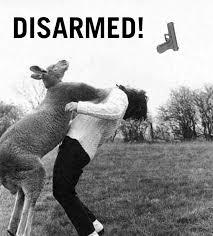Don't ask about the kangaroo
 If
a
,
b
and
c
are real numbers such that
a
=
b
and
a
2
(
b
+
c
)
=
b
2
(
a
+
c
)
=
2
,
find the value of
c
2
(
a
+
b
)
If
a
,
b
and
c
are real numbers such that
a
=
b
and
a
2
(
b
+
c
)
=
b
2
(
a
+
c
)
=
2
,
find the value of
c
2
(
a
+
b
)
The answer is 2.
This section requires Javascript.
You are seeing this because something didn't load right. We suggest you, (a) try
refreshing the page, (b) enabling javascript if it is disabled on your browser and,
finally, (c)
loading the
non-javascript version of this page
. We're sorry about the hassle.
3 solutions
Congratulations. A nice way of thinking.
What's with that kangaroo? :D
I just substituted a = b = c = 1 . Btw why is that kangaroo?
Log in to reply
It is given a is not equal to b.
Log in to reply
Yeah... Let a = 1 and b= 1 . 0 0 0 0 0 . . . . 0 1
It is just given to cancel off a − b as in @Angel Daniel Lopez Flores 's solution
Log in to reply
@Pranjal Jain – 1.00000....01 still has a limit of 1. Its like 0.99999...
Log in to reply
@Ryan McDaniel – I mean 1 can be approximated as 1 + 1 0 − 9 9 9 9 9 9 9 9 9 9
Log in to reply
@Pranjal Jain – I do not think that helps!
a 2 ( b + c ) = b 2 ( a + c ) = 2 a 2 ( b + c ) = b 2 ( a + c ) c ( a 2 − b 2 ) = a b ( b − a ) c ( a + b ) ( a − b ) = − a b ( a − b ) ( c ( a + b ) ) 2 = ( − a b ) 2 c 2 ( a + b ) = a + b a 2 b 2
From the original equations: c = a 2 2 − b = b 2 2 − a a − b = b 2 2 − a 2 2
a − b = 2 a 2 b 2 ( a + b ) ( a − b ) a + b a 2 b 2 = c 2 ( a + b ) = 2
Since
(a^2)( b + c ) = (b^2)( a + c )
Then
( a - b )( a b + a c + b c ) = 0 , but a, b are not equal, then
a b + a c + b c = 0
c( a + b ) = - a b
Multiply by c
Then
(c^2)( a + b ) = - a b c ......................... (1)
Since
(a^2)( b + c ) = (b^2)( a + c ) = 2
Then
a + c = 2/b^2
b + c = 2/a^2
eliminating c
Then
(2/b^2) - a = (2/a^2) - b
Simplifying , then we get
a + b = (a^2)(b^2)/2
multiply by c^2
Then
(c^2)( a + b ) =(a^2)(b^2)(c^2)/2 ...............(2)
From (1) , (2) we get
a b c = -2
substituting in (1) we get
(c^2)( a + b ) = 2
really a nice problem
0 = a 2 ( b + c ) − b 2 ( a + c )
= a b ( a − b ) + ( a 2 − b 2 ) c
= ( a − b ) ( a b + a c + b c ) but a = b ,
then a b + a c + b c = 0 .
Multiplying by a − c
0 = ( a − c ) ( a b + a c + b c )
0 = a c ( a − c ) + ( a 2 − c 2 ) b
0 = a 2 ( b + c ) − c 2 ( a + b )
then c 2 ( a + b ) = a 2 ( b + c ) = b 2 ( a + c ) = 2